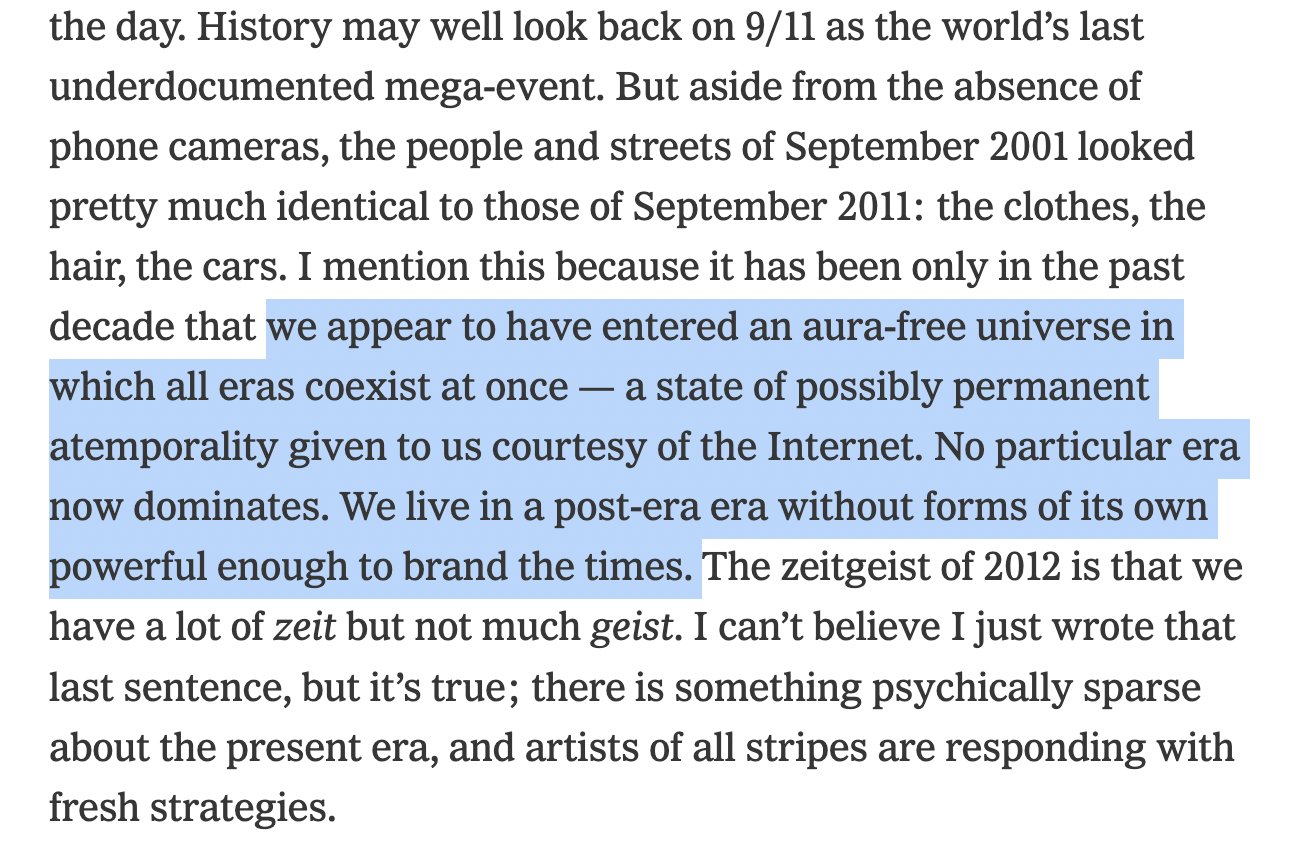Thread
A possible term of art: Novels of the #UnprivilegedPresent. Works in which the past, present and future are all presented as equals. Often (perhaps necessarily?) episodic.
Examples: A Visit from the Goon Squad & The Candy Room, by @egansquad; I Still Dream by @jpsmythe; Cloud Atlas & The Bone Clocks by @david_mitchell; The Sea of Tranquility by @EmilyMandel; Here by Richard McGuire
Also, though I have yet to read it, Cloud Cuckoo Land by @DoerrTorresal
Other examples?
These works can be seen as a subset of "Translit", a term coined by @DougCoupland in a terrific review of @harikunzru's "Gods Without Men"
www.nytimes.com/2012/03/11/books/review/gods-without-men-by-hari-kunzru.html?pagewanted=all&_r=0
www.nytimes.com/2012/03/11/books/review/gods-without-men-by-hari-kunzru.html?pagewanted=all&_r=0
But though he cites Cloud Atlas as a tentpole of the genre, in the rest of his discussion he does not mention works which carry on into the future.
And interestingly (at least to me) Gods Without Men, which would seem to lend itself to the technique, IIRC eschews future-set episodes. I would imagine, Hari being Hari, he considered them and rejected the idea. Would be interested to know why.
This #UnprivilegedPresent form is clearly related to time travel narratives, but distinct from them. The form can be facilitated by in-narrative technological time travel (eg in SofT) but does not depend on it.
And it is also one that canonical time-travel fiction does not seem to me to explore much, if at all.
though an expert in the field eg @john_clute or @JamesGleick might differ, or at least point to antecedents
(Timescape by Greg Benford treats the past and then future symmetrically, but I think excludes what to readers would have been the then present)
(Timescape by Greg Benford treats the past and then future symmetrically, but I think excludes what to readers would have been the then present)
The works I am thinking of are also all kind of unitary in their conception of the future. They are not about branching and multiversiness (though obviously there is a ludic non-historical continuity to Cloud Atlas)
So when did this sort of equal-handed past-present future temporality, with no frame particularly centred, first appear? If it is having a moment now, why? And does the addition of a future reflect an attempt to do more than what Coupland sees his Translit as doing?
And if you're a writer of fiction not already mentioned in this thread, eg @simonings @amendlocke @KBAndersen @JamesFlint @RozKaveney @UnlikelyWorlds @greatdismal is this a form that appeals to you? Or that you have consciously decided against?
Mentions
See All
Stewart Brand @StewartBrand
·
Jul 5, 2022
Good discussion thread.

